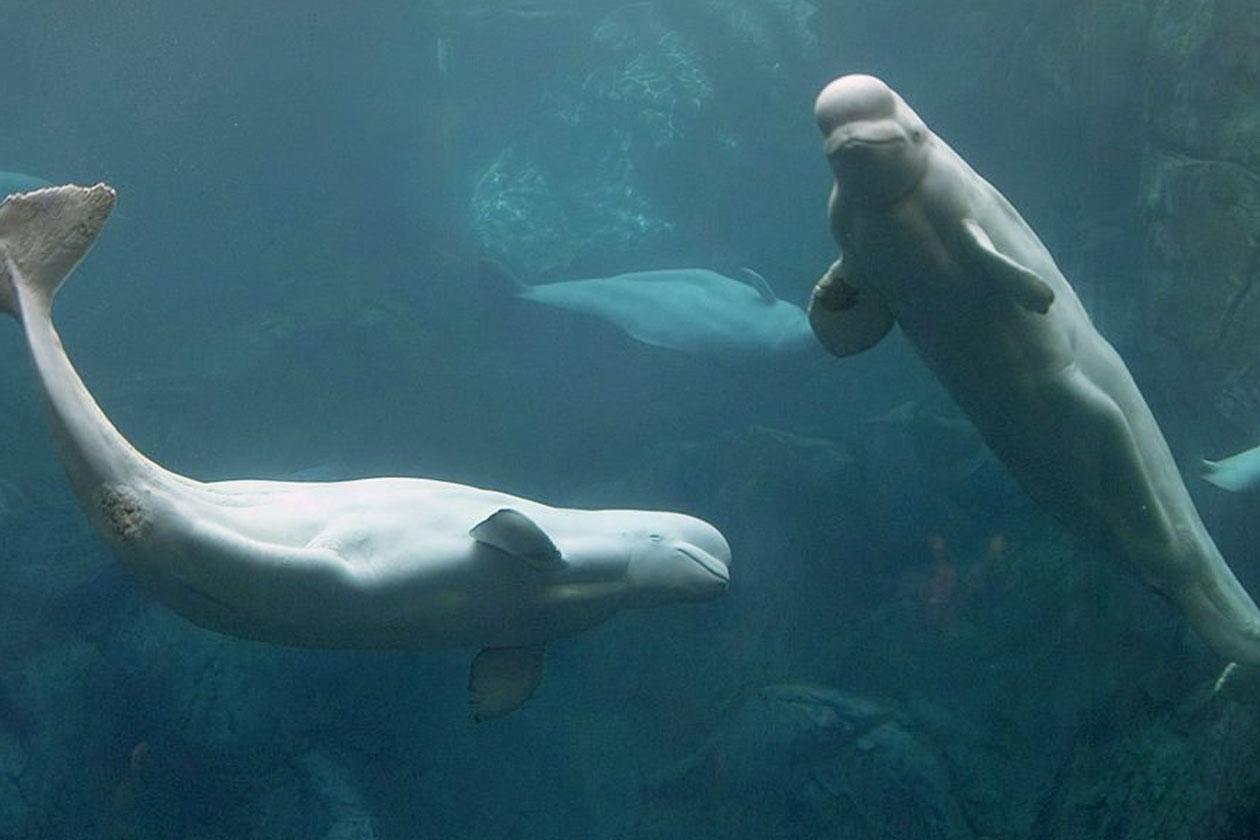Who do you interact with in a regular day? Maybe you greet the morning with your spouse and children. Later you head out with friends to a popular lunch spot. You do business with your coworkers, say hello to your neighbor, and end the evening with a visit to mom. If so, you might not be very different from a beluga whale.
These maritime mammals have complex social networks, where support structures and cooperation extend beyond the nuclear family. Beluga communities often have a mix of family members, extended relations, and non-kin. There’s also a variety of sex and age. And, like many humans, belugas have long lifespans, but usually stay within the society they were born into.
While belugas have similar social networks to humans, their communities actually differ from those of other whales! Originally, scientists believed that beluga whale groups had a strict matrilineal structure, centering around mothers and their family trees. After all, this is the case for killer and sperm whales. Yet a later study explains some of the many ways belugas organized themselves: small dyads of mom and calf, groups of extended family members, pods of unrelated males, and even herds with over two thousand belugas!
Belugas are loyal community members, and it’s likely they form lasting relationships with the whales of their social network. The benefits are many: whales might care for unrelated calves, and older belugas can lead the group to feeding spots or migratory paths. This exciting information reveals the varied cultures of the creatures of the world—and reminds us of the power of our own intricate, supportive communities.









